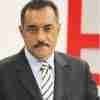On the fourth anniversary of November 26, 2008 (26/11) attacks, it is essential to look back at the role of the media during those crucial days. It is said that media is “a terrorist’s best friend… with terrorism aimed at those watching television — as TV declares who is important — terrorists seek a road to their identity by doing something violent…” But unlike terrorists, governments have yet to fully appreciate the power of information and the role of the media. Winning over the media and bonding with the press is an inescapable requirement now. The job of the media is to report the news, and that it will continue to do, whatever the odds.
The mushrooming of media houses, would impact on quality as many more will veer towards ‘consumer-centric news’, but there will also be many who are objective. The media is on nobody’s side and expects only professional handling. They are as committed to their job as anyone else. Selective and sensible use of media can be an effective tool for the government to create public awareness and avert panic. However, during the 26/11 attacks, the Mumbai police gave wrong updates and issued warnings that added to the panic. For the media, the speed and accuracy of information is essential for their creditability and in turn to raise revenue. Therefore, their rush to be first with the news, as exclusive and breaking news draws more eyeballs, which gets TV channels their TRPs and in turn, more advertising revenues, which is an essential for their survival. The media lives on information and media agencies, need updated news coverage of an event; often by the minute.
They cannot therefore wait for the official governmental spokesperson to emerge and read out their prepared script. The absence of effective governmental response to a rapidly evolving situation that often is the case with large terrorist attacks (as was the case 26/11 attacks in Mumbai) leads reporters and even senior editors to going over the top with their sensational comments. One-upmanship then follows, when reporters tend to give out classified information to impress their viewers and in turn, inadvertently inform the terrorists. In Mumbai on 26/11/2008, the announcement by news channels that commandos were landing on the roof of the hotel where the terrorists were holed up and even the airing of few telephone conversations by some hostages, led to the terrorist’s targeting individuals. And senior officials and those involved with the operations must avoid the temptation of speaking to the press in different times and different voices (as was the case in Mumbai 26/11).
There is a need instead, for putting up presentable, sharp and articulate official spokespersons (not necessarily from the public relation department, but); those who are familiar with such operations such as Officers of NSG/Army/Police Units who should regularly be briefing the press. It should certainly not be done by Senior Commanders (such as the then Navy Chief, Admiral Mehta or then DG NSG, Mr J K Dutt did during 26/11). Senior Commander should concentrate on battle of the ground, instead. For the terrorist also, media coverage is essential to get their message across both to their mentors and the official and government agencies that they are targeting, to their followers and potential recruits who get inspired by dramatic acts (like the 9/11 and 26/11 attacks) and to the public in general, to create fear and grudging respect for their ability to challenge government and security agencies. Therefore, if there was no media terrorist would have created one!


